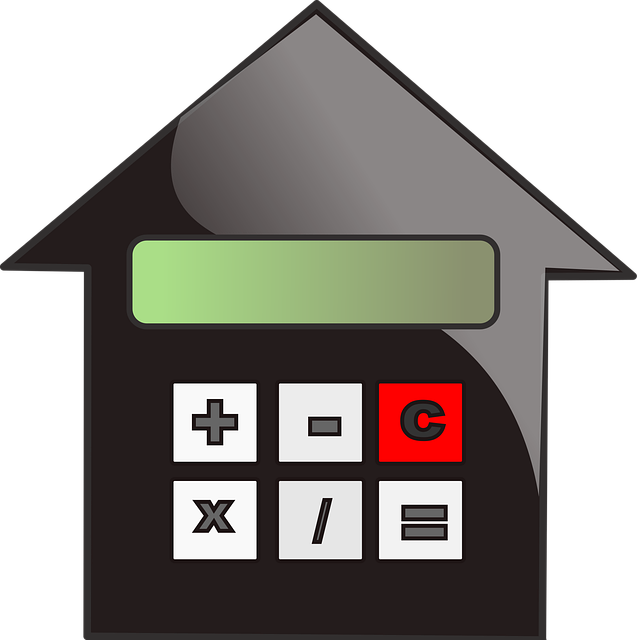Debt consolidation loans with variable rates combine multiple debts into one with potentially lower initial rates, saving on interest over time. However, these rates fluctuate based on market conditions and lender formulas. To secure favorable terms, compare offers from top lenders, assess your financial situation, understand rate adjustments, consider repayment strategies, and evaluate lender reputations. UK bad credit applicants can access these loans but may face higher interest rates.
Considering debt consolidation loans but wary of variable rates? This comprehensive guide breaks down everything you need to know. We explore what debt consolidation is, how variable rates function, and delve into the pros and cons of such loans. Learn how to evaluate your financial situation, compare loan options effectively, and implement strategies for repaying variable debt with confidence. Make informed decisions towards a debt-free future.
- Understanding Debt Consolidation Loans
- Variable Rates: How They Work
- Pros and Cons of Variable Rate Loans
- Evaluating Your Financial Situation
- Comparing Loan Options
- Strategies for Repaying Variable Debt
Understanding Debt Consolidation Loans

Debt consolidation loans offer a strategic approach to managing multiple debts by combining them into one loan with a single payment. This process simplifies repayment, potentially saving you money in interest charges over time. One common type is the variable-rate debt consolidation loan, where the interest rate fluctuates based on market conditions. This option can be appealing as it often starts with a lower rate compared to individual debts, providing immediate financial relief. However, it’s crucial to understand that these rates can change periodically, potentially increasing your overall cost if not managed carefully.
When considering a variable-rate debt consolidation loan, evaluate the terms and conditions thoroughly. Look into factors like the initial fixed period during which the rate remains constant, any caps on how high the rate can go, and the frequency of rate adjustments. Securing a lower variable debt consolidation rate requires careful comparison of offers from different lenders and assessing your ability to make consistent payments, even if rates rise. Consolidate debts with personalized variable rates to suit your financial goals, but be prepared for potential fluctuations in your monthly repayments. Weighing the variable rate debt consolidation pros and cons is essential before making a decision that aligns with your long-term financial health.
Variable Rates: How They Work

Debt consolidation loans with variable rates are designed to adjust over time based on market conditions and the lender’s specific formula. Unlike fixed-rate loans, where the interest remains constant throughout the term, variable rates can fluctuate periodically. This means your monthly payments may vary from month to month. Lenders typically base these adjustments on a benchmark interest rate, such as the London Interbank Offered Rate (LIBOR) or another reference rate, plus a margin they set.
When considering a debt consolidation loan with a variable rate, it’s crucial to understand how these adjustments work and what factors influence them. This knowledge will help you make an informed decision on choosing the right variable-rate loan, ensuring you get the most favorable terms. Compare lowest variable rate debt consolidation companies to find the best option that aligns with your financial goals, keeping in mind that while variable rates can offer potential savings, they also carry the risk of increased payments if rates rise.
Pros and Cons of Variable Rate Loans

Debt consolidation loans with a variable rate offer both advantages and disadvantages for borrowers looking to manage their debt effectively. One of the key benefits is the potential for significant savings over time, especially if interest rates decrease. Variable rates can start low and adjust periodically, allowing borrowers to take advantage of market fluctuations in their favor. This can be particularly advantageous when interest rates are declining, providing an opportunity to pay off debt faster and reduce overall interest paid.
However, the main drawback is the uncertainty and potential for increased costs. Since variable rates are subject to change, there’s a risk that interest rates will rise, leading to higher monthly payments. This can make it challenging for borrowers to budget, especially if their income remains static or decreases. Additionally, these loans may come with fees and penalties for early repayment, making it crucial for individuals to understand the terms and conditions thoroughly before accepting such a loan. Understanding what affects variable interest rates on loans is essential, as it empowers borrowers to make informed decisions and implement effective tips for managing variable debt consolidation rates.
Evaluating Your Financial Situation

Evaluating your financial situation is a crucial step before deciding whether to consolidate your debt at a variable rate. Start by assessing your current income and expenses to understand your cash flow. Look at all sources of income, including salaries, investments, or any other regular payments. Then, list all your debts, categorizing them by type (e.g., credit cards, personal loans, mortgages) and interest rates. This will help you identify high-interest debts that could benefit most from consolidation.
Consider your financial goals and overall strategy for managing debt. If you’re aiming for long-term savings on interest, a variable rate might be suitable, especially if you expect your income to grow or if current rates are relatively low. However, be mindful of potential increases in the variable rate over time. Get approved for a variable rate debt consolidation loan by comparing lenders and their terms, focusing on those offering competitive rates and flexible repayment options tailored to your budget.
Comparing Loan Options

When considering debt consolidation loans with a variable rate, it’s crucial to compare different loan options available in the market. Start by evaluating the interest rates, repayment terms, and fees associated with each lender. Variable-rate loans can offer lower initial interest rates compared to fixed-rate loans, but they are subject to change over time. Therefore, research lenders that provide transparency in their rate adjustments and consider how often rates can fluctuate.
To negotiate a better deal, delve into how to discuss lower variable loan rates with potential lenders. Evaluate the reputation of each lender by comparing top variable rate debt consolidators. Ensure you find the right lender for your needs by checking customer reviews and understanding their terms thoroughly. This process will help you make an informed decision when consolidating your debt, ultimately leading to better financial management.
Strategies for Repaying Variable Debt

Debt consolidation loans with a variable interest rate can be a powerful tool in managing your debt, but it requires careful planning and understanding. The first step is to understand variable loan terms and conditions. These loans typically have an interest rate that fluctuates over time, often based on an underlying benchmark rate. This means your monthly payments can change, which might sound daunting but can work in your favour if rates drop. A strategic approach involves focusing on repaying the debt as quickly as possible to minimize exposure to higher rates.
Consider implementing repayment strategies for adjustable rate loans. One common method is the debt avalanche strategy, where you prioritize paying off debts with the highest interest rates first while making minimum payments on others. This can help save money in the long run. Alternatively, the debt snowball method involves tackling debts with the smallest balances first, building momentum and potentially saving more on fees associated with early repayment. With a debt consolidation UK bad credit option, even those with less-than-perfect credit can access these strategies, though interest rates may be higher.
Debt consolidation loans with variable rates can be a powerful tool for managing debt, but they require careful consideration. By understanding the dynamics of variable rates, weighing the pros and cons, and strategically planning your repayments, you can make an informed decision that aligns with your financial goals. When comparing loan options, evaluate your current financial situation to ensure a variable rate loan is the right choice for you.
